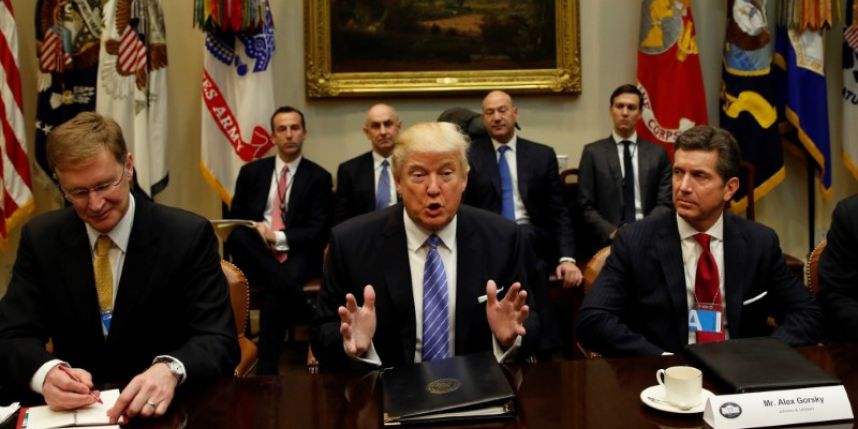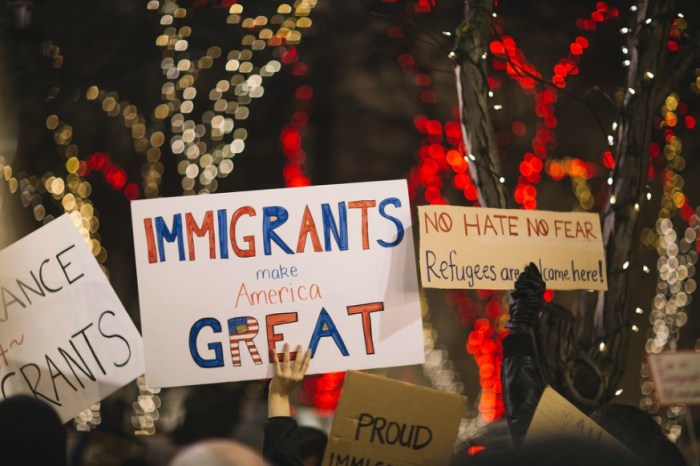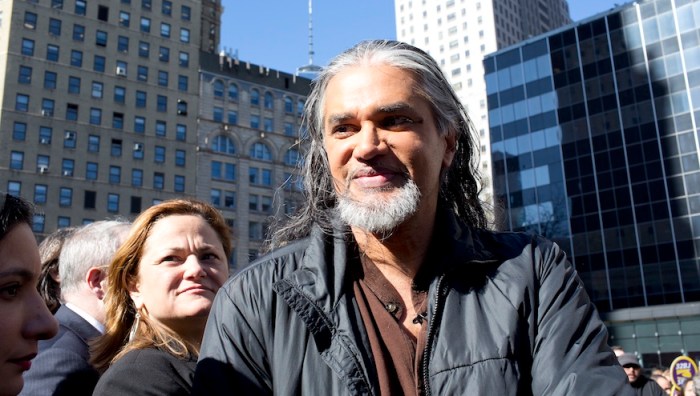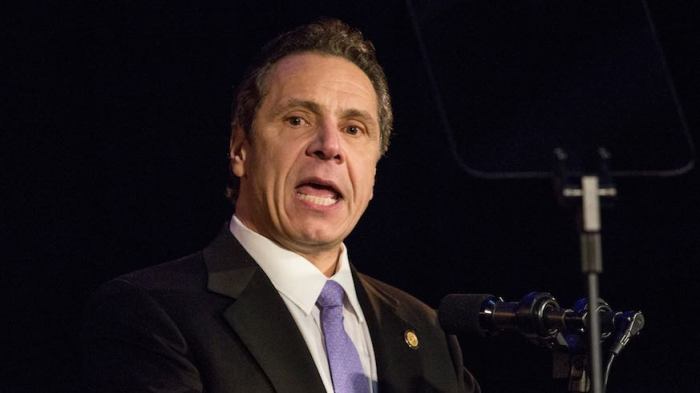In his first week in office, President Trump signed five executive orders and those actions have spurreda lot of responses, but what can these orders actually do? Laura Rótolo, an immigration lawyer with the ACLU of Massachusetts, explains. These are executive orders and not laws, does that affect anything?
Immigration is a complicated area that’s governed both by executive action and congressional action. Some of the things Trump is talking about can only be done through Congress, though there is a lot of executive power in immigration. But these things are going to need money. Trump’s executive order concerning sanctuary cities says they “willfully violate Federal law in an attempt to shield aliens from removal” from the U.S.; is that true?
The fact that it says “willfully violate” is really important. Most of these sanctuary cities and trust act policies do not willfully violate any federal law. The federal law that the executive order focuses on is actually very narrow—all that law says is that no agency or official can prohibit or restrict the flow of information among agencies about two things, citizenship and immigration status. The policies that I’ve seen in Massachusetts do what they have a legal right to do, which is refuse voluntary collaboration with immigration. Can you clarify what is voluntary and what would fall into the flow of information?
Some of it is information, but it’s not information that falls into those two categories. If you have somebody in your custody, [Immigration and Customs Enforcement] wants to know ‘When is that person getting out so we can come pick them up?’ That is not prescribed in the statute. Holding somebody in a local cell, paid for by the locality, supervised by local officials—that is something the federal government can’t force localities to do.
If a city refuses to comply, this order says it could withhold federal funding. Can be done?
We would see any withholding of funding as coercion. The lawsuit about Obamacare is really helpful here: The Affordable Care Case talked about withdrawing funding from cities who were not complying and the Supreme Court talked about using that funding as coercion and struck down those provisions. What cities could be targeted?
There is no legal definition of what a sanctuary city is. That being said, the executive order says that the attorney general will decide which cities are subject to this sort of retaliation—which cities they consider to be a sanctuary city. So even if your city doesn’t call itself that, the attorney general may designate it one and go after its funding. What is the legal responsibility when an undocumented immigrant is talking to law enforcement for something unrelated to their immigration status?
It’s sort of a states’ rights and cities’ rights issue. Police chiefs have said across the country that they can’t win the trust of the community if they’re seen as ICE agents. It’s better for community policing to draw a clear line—not talking about immigration status at the local level and not turning people over to ICE. If you know your police are going to turn you over, you won’t call for help, you won’t collaborate in fighting crimes. A part of the executive order was to prioritize deporting immigrants who have been “convicted of any criminal offense,” “have been charged with any criminal offense,” “have committed acts that constitute a chargeable criminal offense” and so on, how is this different from current deportation practices? These are brand new priorities. They really go against the whole notion of deporting serious or violent criminals, which is what Trump has said he’s going to focus on. There’s also a bullet point in there about somebody who an ICE agent thinks is a threat to public safety—there’s no oversight on that, there’s no judges weighing in. It opens the door for a wide dragnet of people who have no criminal convictions to be deported. The order calls for the creation of an “Office for Victims of Crimes Committed by Removable Aliens,” what will its scope be?
I can say it’s going to have to be a very small office. Studies have shown time and again that immigrants commit fewer crimes than native-born Americans. This is a political move. It is not about public safety. The order would also end the “catch and release” policy that temporarily releases certain undocumented immigrants because of limited detention space. If we don’t have the detention space now, what would happen to those people? The only way would be to create more detentions. That would acquire appropriations from Congress either to build new prisons or enter into new contracts with county facilities, which has been problematic because of a lack of accountability. Was there anything else that stuck out in these orders?
There was this sort of sarcastic and offensive piece in the sanctuary city portion that said that they will publish a weekly list of crimes that have been committed by immigrants in jurisdictions that aren’t cooperating. It’s just another form of coercion. It’s a way to try to embarrass cities; it’s not well intentioned and it’s not a good way to use our resources for public safety.
Immigration lawyer explains Trump’s executive orders

Reuters


















